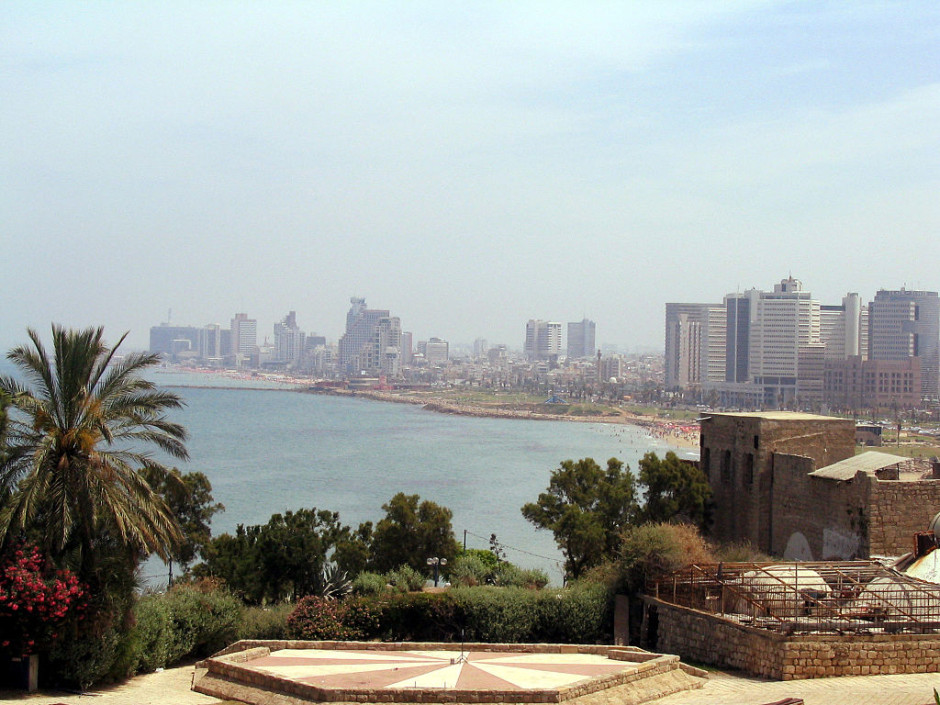The current wave of Palestinian terrorism washing over Israel has unsettled many Israelis, even those living a considerable distance from the West Bank and Jerusalem, where almost all the incidents have occurred since about mid-September
Once again, Israelis are under siege.
Israel fought wars on Arab soil in 1956, 1967, 1973 and 1982. But ever since Israeli cities were subjected to Iraqi Scud missile strikes in the 1991 Gulf War, Hezbollah rocket attacks in the 2006 Second Lebanon War and Hamas bombardments in the Gaza wars of 2008-09, 2012 and 2014, Israelis have faced a bitter reality.
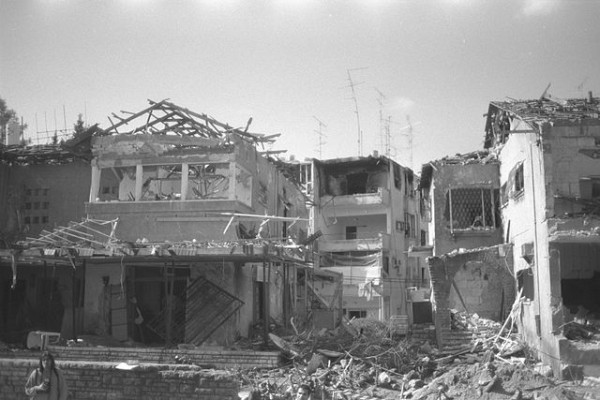
They have had to adapt to wars on their home ground.
A few days ago, with this thought ringing in mind, I talked to an old Israeli friend who lives in Tel Aviv, which has emerged mostly unscathed from the latest violence. When I asked her if the troubles have affected her personally, she gave an ambivalent answer.
“There’s anxiety in back of my mind,” she replied. “But that’s it. Life goes on. Absolutely.”
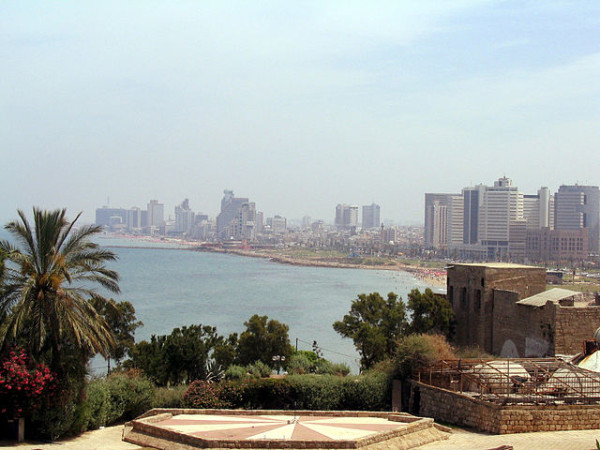
Israelis, having been through the ringer of ten wars and two Palestinian uprisings, are inured to upheaval and terrorism. In short, they can cope with adversity. As Prime Minister Benjamin Netanyahu observed more than a week ago, “The most important tool we have is the perseverance, courage and determination to fight terrorism, just as we have fought its various expressions over the past 100 years.”
About a month before delivering this upbeat message, Netanyahu struck a more somber note, acknowledging that Israel will have to “live forever by the sword.”
It was a terrible admission, but my friend believes that the current upsurge of terrorism — which has claimed the lives of 19 Israelis, one American and more than 100 Palestinians at last count — may be the new normal. “We were warned today that this may go on for a while,” she said, a tinge of resignation in her voice.
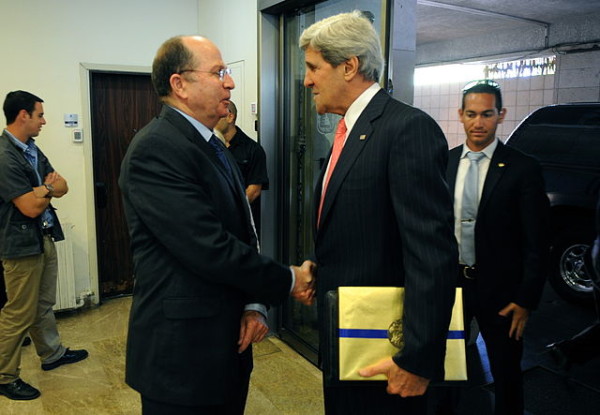
I presume she was referring to comments made by Defence Minister Moshe Yaalon on November 27. Speaking to an audience of industrialists in Eilat, he said, “This wave will accompany us in the coming days, coming weeks and maybe more than that. We don’t know if the terror will end soon, or when it might do so. So we must prepare for every eventuality. We cannot promise that things will calm down. They may escalate.”
Given Yaalon’s grim comments, Israel may have to prepare itself for a prolonged period of terrorism. Israel has adopted a series of security measures to deal with it, but it may persist, if the past is any guide.
The first Palestinian revolt erupted in 1987 and lasted several years. With the signing of the 1993 and 1995 Oslo peace accords, Israelis faced a spate of suicide bombings of unprecedented proportions. Israelis endured still more ferocious suicide attacks following the outbreak of the second intifadah in 2000. And they experienced periodic rocket and mortar shelling after Israel’s unilateral withdrawal from the Gaza Strip in 2005.
For the past two and a half months, Israel has faced a torrent of random lone wolf assaults launched by mostly young Palestinians men and women brandishing knives, screw drivers, scissors and guns. In a few instances, Palestinians have rammed their vehicles into Israeli crowds. In this sense, the terrorist campaign we’re witnessing today is leaderless rather than orchestrated and more like the first than the second more deadly Palestinian rebellion.
Although Hamas has brazenly issued congratulatory messages to the attackers, the Palestinian Authority has hewed to a far more cautious approach. While implicitly justifying the terrorism on the grounds that Israel has sought to alter the status quo on the Temple Mount in East Jerusalem — a claim Israel stoutly denies and considers a source of incitement — PA President Mahmoud Abbas has nonetheless ordered his forces to continue with the policy of security cooperation with the Israeli army.
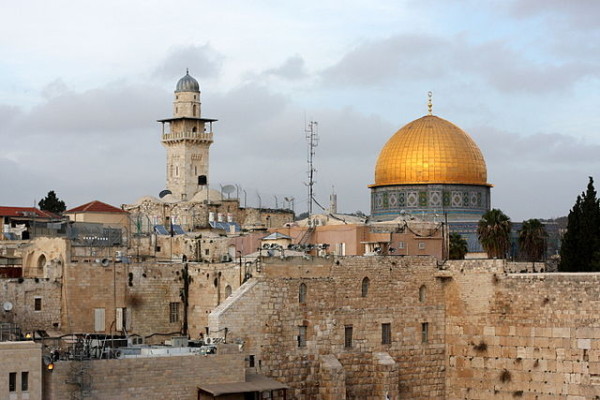
Netanyahu implicitly blames the Palestinians for the violence. Writing on his Facebook page on November 19, just three days after Paris was terrorized by Islamic State, he noted, “Behind these terrorist attacks stands radical Islam, which seeks to destroy us, the same radical Islam that struck Paris and threatens Europe.”
More explicitly, Netanyahu has directly accused the Palestinian Authority of supporting “religious incitement” on social media platforms in East Jerusalem, the West Bank and Gaza. The images on these sites are graphically bloodthirsty.
By contrast, Abbas holds Israel squarely responsible for the current wave of terrorism. Ascribing it to Israel’s occupation of the West Bank, he told the United Nations recently: “The events happening in our country are the result of diminishing hopes, the continued situation of strangulation, siege and pressure, and the lack of sense of security and safety felt by our people. All of these factors generate tremendous frustration. The angry uprising of our people and the successive events of the recent period are an inevitable result of what we have cautioned about.”

Ticking off a list of grievances, Abbas said, “The continuation of the Israeli occupation … cruel arrests and detention of civilians, extra-judicial killings of our youth and children, the blockade of Gaza, home demolitions, repeated brutal attacks by Israeli terrorist settlers against our people and their property, and provocations and incitement against their holy places … affirm Israel’s arrogance and intransigence, its violations of international law, its rejection of peace and its adherence instead to the ideology of colonial expansion, subjugation and greed. ”
In a recent meeting with U.S. Secretary of State John Kerry in Jerusalem, Netanyahu said Israel will not ease restrictions in the West Bank through conciliatory gestures unless the violence comes to a complete stop.
According to reports in the Israeli press, Netanyahu has rejected a recommendation by the army to rein in violence by means of confidence-building measures such as the release of Palestinian prisoners and the granting of more work permits to Palestinians.
Yaalon has dismissed calls for a massive military operation in the West Bank, contending that Israel must strike a fine balance between squelching terrorism and allowing the Palestinians to live in peace and dignity.
Israel has taken some steps to defuse the violence.
On November 26, three days after Netanyahu announced plans to build more bypass roads in the West Bank for Israeli drivers and to revoke the work permits of terrorists’ extended families, Yaalon disclosed Israel will erect a security barrier between the West Bank town of Hebron and the Israeli border.
Israel has also attempted to place a lid on terrorism by targeting a major source of incitement — the Palestinian media.
Last month, Israel raided Palestinian radio stations in the West Bank and closed one of them. On November 30, the Palestinian Authority suspended the programming of Hamas’ Al-Aqsa television station.
Closer to home, Israel outlawed the northern branch of the Islamic Movement on the grounds that it foments attacks on Jews. Its leader, Sheikh Raed Salah, has been convicted of incitement and will soon report to prison to serve an 11-month sentence.
In the final analysis, though, these are cosmetic measures that will have little effect in dampening Palestinian anger, rage and hopelessness. Surveys suggest that most Israelis want to separate from the Palestinians by means of a two-state solution. But the peace process, such as it was, is dead, and Palestinians are venting their frustration through terrorism.
